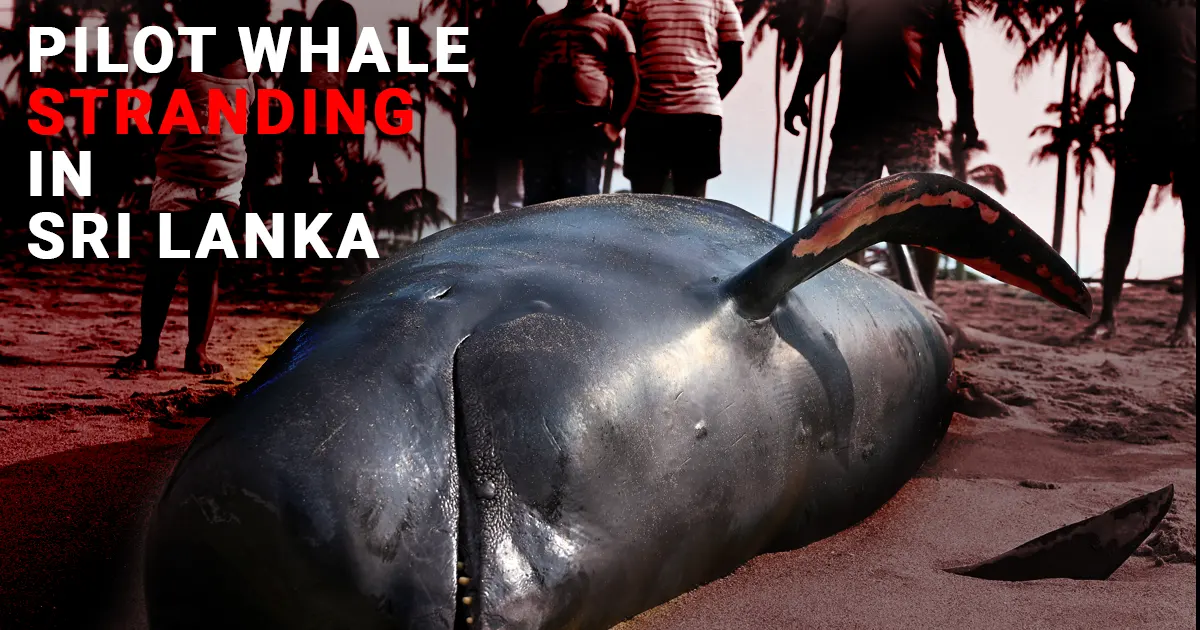PRELIMS – SPECIES

Context: Fourteen pilot whales were stranded on the shores of Kalpitiya, Sri Lanka, bringing attention to the phenomenon of whale strandings or beaching.
About Pilot Whales
Pilot whales belong to the dolphin family and are known for their social nature and frequent mass stranding incidents.
Species:
- Short-finned Pilot Whale (Globicephala macrorhynchus):
- Habitat: Tropical and warm-temperate waters.
- IUCN Status: Least Concern (LC).
- Long-finned Pilot Whale (Globicephala melas):
- Habitat: Colder waters.
- Subspecies:
- Southern Long-finned Pilot Whale (G. m. edwardii).
- North Atlantic Long-finned Pilot Whale (G. m. melas).
- North Pacific Long-finned Pilot Whale (now extinct).
- IUCN Status: Critically Endangered (CR).
Characteristics:
- Social Structure: Travel in tightly-knit groups led by a dominant individual.
- Appearance: Black coloration with some individuals displaying a pale, anchor-shaped mark on their throat and chest.
- Sexual Dimorphism: Males are larger than females.
What is Whale Stranding?
Whale stranding, also known as whale beaching, occurs when whales, dolphins, or porpoises enter shallow waters and become trapped, often leading to injury or death.
- Mass Strandings: Can involve hundreds of marine animals simultaneously.
- Rising Sea Temperatures:
- Alters prey distribution, pushing whales closer to the coast and increasing stranding risks.




